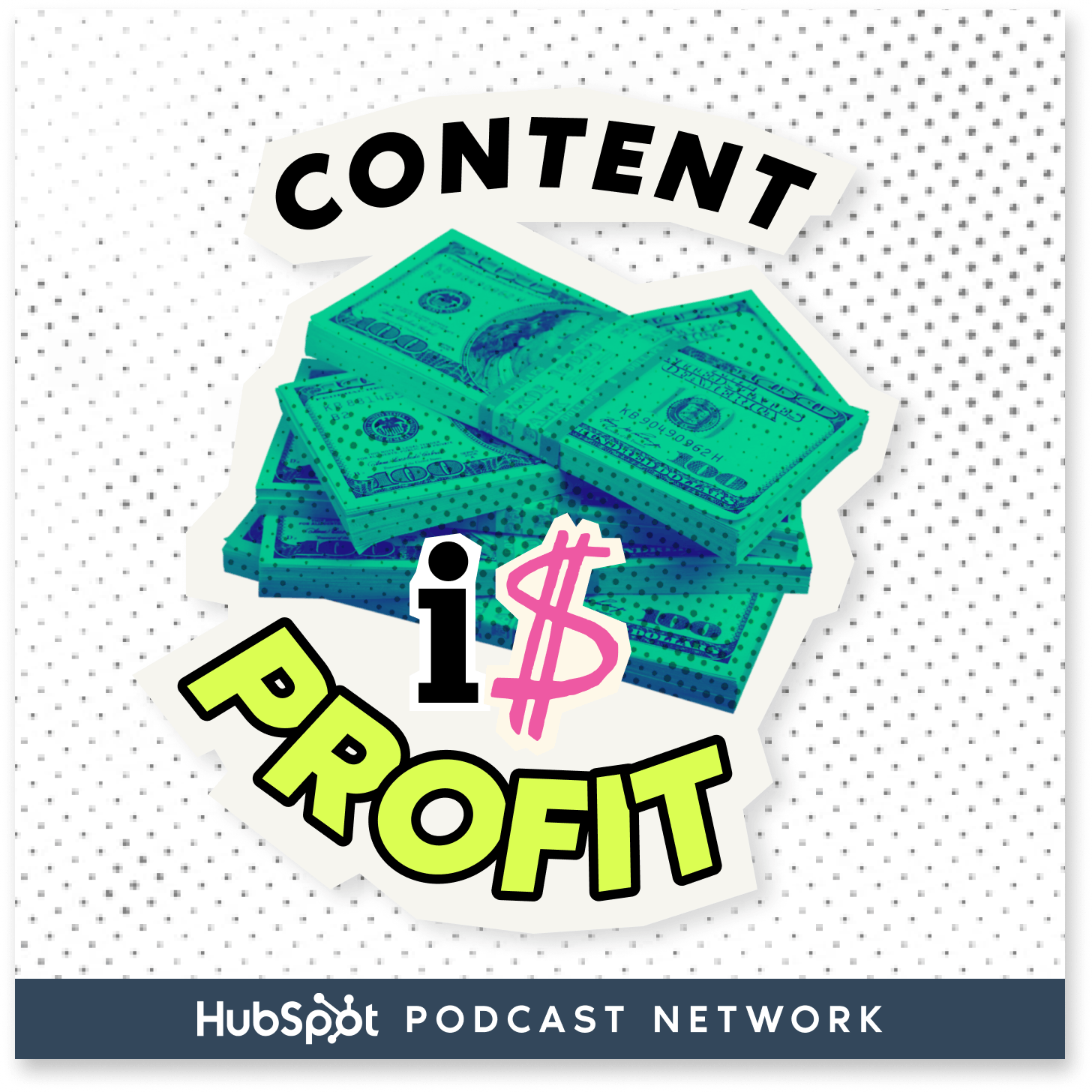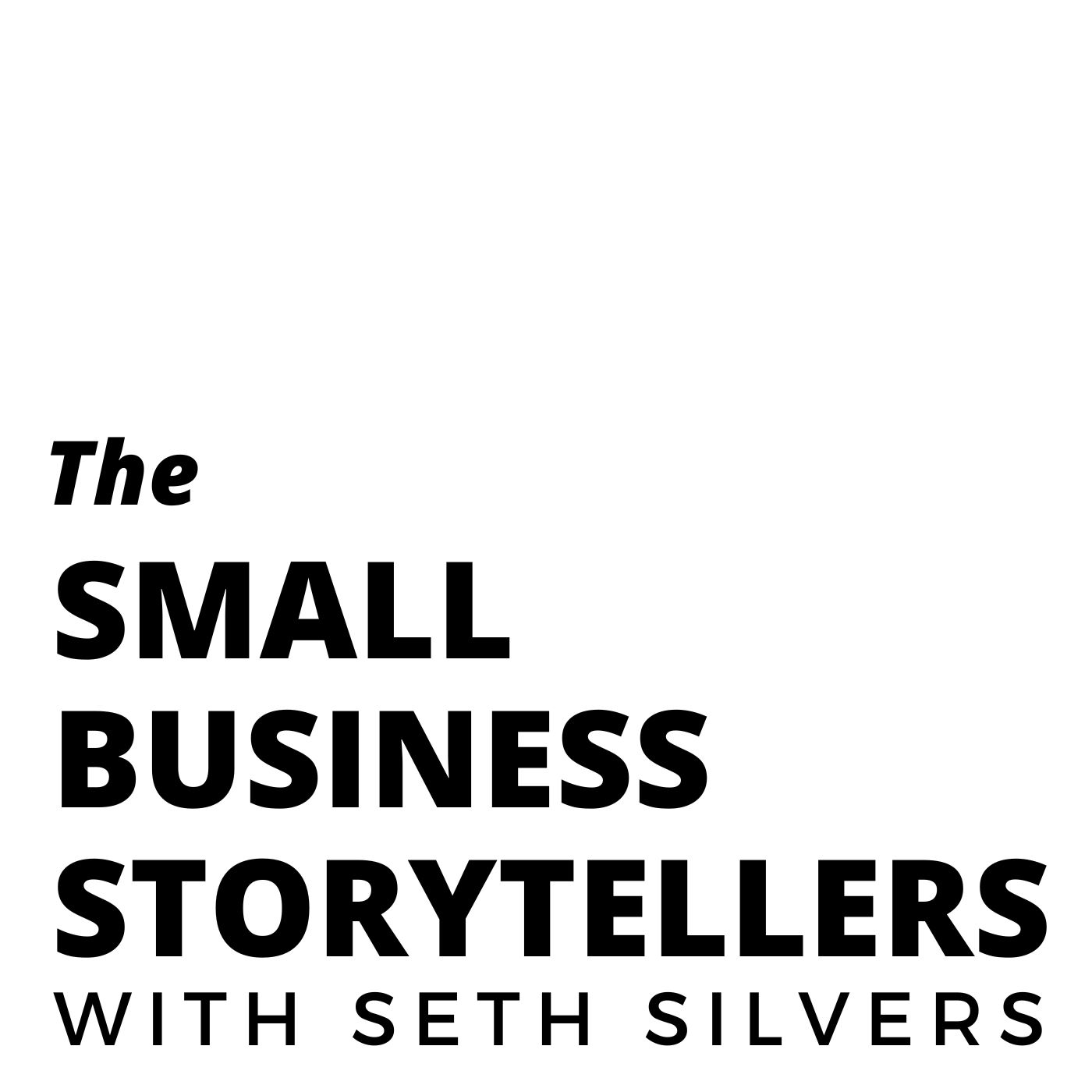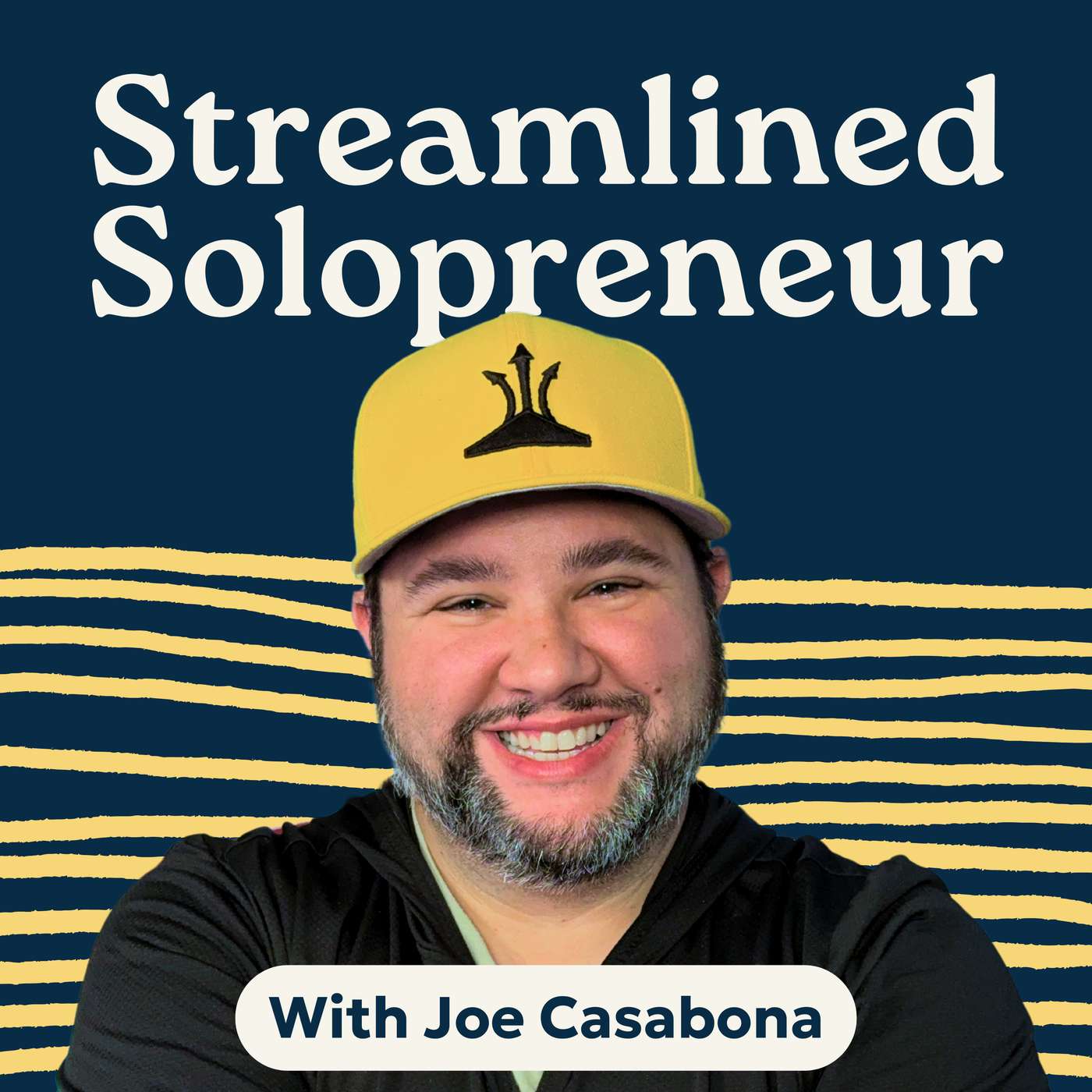
Podcasting Made Simple
Podcasting Made Simple is the premier podcast about podcasting! We’re here to help podcast guests and podcast hosts reach more listeners and grow their income so they can change more lives! Join Alex Sanfilippo and other podcasting industry experts as they share how you can level up on either side of the mic! (Show notes and resources: https://PodMatch.com/episodes)
Podcasting Made Simple
Grow Your Show by Repurposing Podcast Content | Aubrey Paris
Getting your podcast discovered can be challenging due to the number of podcasts with similar focuses and the many available episodes on podcast players. Thankfully, there is something you can do to get your podcast in front of listeners faster! In this episode, Aubrey Paris explains how you can branch out beyond the podcast players by repurposing your episodes into alternative forms of content so your podcast can be easily discovered. Get ready to grow your show by meeting listeners where they are!
MORE FROM THIS EPISODE: HTTPS://PODMATCH.COM/EP/325
Chapters
00:00 Introduction to Alternative Content Formats
02:47 Exploring Alternative Content Ideas
06:12 The Five-Step Process for Alternative Content
09:07 Building Relationships Through Alternative Content
12:03 Conclusion and Call to Action
Takeaways
Podcasting is just one form of multimedia.
Exploring alternative content can enhance your podcast.
Creative strategies are essential for growing your audience.
Identify what your listeners need beyond audio content.
Alternative content can take many forms, digital or physical.
Collaboration is key to executing alternative content ideas.
Promote your alternative content in various communities.
Sustainability is crucial; plan for repeat events.
Engage your audience through personal interactions.
Your podcast research can serve as a foundation for alternative content.
MORE FROM THIS EPISODE: HTTPS://PODMATCH.COM/EP/325
PodMatch has officially launched a podcast network for independent interview-based podcasts! To apply to be part of the network, please visit https://PodMatch.com/network and press the "Join Network" button in the top center of the screen. While you're there, be sure to check out some of the incredible shows in the network!
You're listening to Podcasting Made Simple. Or maybe brushing up on your guests' previous interviews to ensure that your questions are unique and informed. Or insert your personal prep method here. And you know what? I'll bet it makes for a great podcast episode. But what if it could make for a great something else, I'm going to let you in on a little secret. Contrary to popular belief, podcasting isn't the only form of multimedia out there. Gasp, right? It turns out that exploring other forms of digital or print media or even non-media formats for audience engagement can provide a lot of benefit back to your podcast. I call this exploring alternative forms of content. And doing so first and foremost helps you get more bang for your buck in terms of the preparations and research you are already doing for your podcast. Breathing new life into all those behind the scenes Word docs and Google Sheets that no one but you ever sees or appreciates. And if that's not reason enough to explore alternative forms of content, branching out beyond podcasting, if you will, can I interest you in growing your podcast audience? If there's one thing that we can all agree on as podcast hosts, it's that we are operating in a saturated media environment. Now, don't get me wrong, I'm not doubting your ability or my ability, or frankly, any passionate podcasters ability to carve out a niche for themselves and then make great content for loyal listeners. But meaningfully growing that loyal listener base is tough, and we need to get more creative with our strategies for doing so. The reality is there are probably a ton of people out there who would love the content that you're regularly sharing to your RSS feed. but only a minority of them are naturally drawn to audio content, to podcasts themselves. We need to be able to meet these potential listeners where they are, online or in the real world, and then draw them back into our shows. It turns out that alternative content formats are a great place to start. So, what can these mystical alternative content formats actually look like? Not to overwhelm, but they can be literally anything. The world is your oyster. And in just a minute, I'm going to give you some tips for how to narrow down the possibilities and then proceed to take action. But to get the creative juices flowing, let's just throw some examples out there. If digital options are more your speed and, importantly, the speed of your targeted audience, alternative content could look like a virtual film festival or an online seminar series. If you want to get out in the real world, a job fair, a networking event, or a walking tour could do the trick. Maybe you could write and publish a book. The possibilities are truly endless. And now at this point, if I've done my job correctly, you're intrigued and you see the potential value, but maybe you're just not quite sure where to start. So here is a five-step process that I've used to turn my podcast into alternative content formats not once, not twice, but three times to date. And I think it'll help you get started on your alternative content journey too. So the first step is the obvious one. You need to pick what type of alternative content to generate. But beware, this choice should not be taken lightly. Ideally, you're gonna select an option that interests you personally, since you need to feel inspired to continue the process. But you will need to think beyond that too. you're going to want to determine the unique needs of your audience, which starts by identifying the genre or niche that your podcast already fills, and then maybe polling your existing audience about what sorts of content they'd be interested in beyond your audio. You could set up a survey or use your podcast call to action to elicit feedback or set up polls in your Instagram stories. Your priority is to answer the question what are my current listeners' needs? Because chances are the people who should know about your podcast but don't have those exact same needs. Let's think of some examples. If you have a career podcast skewing towards recent grads, maybe your listeners would benefit from a networking event or a happy hour where everyone exchanges resumes and provides constructive feedback. If you're a film-focused podcast, maybe you could host a showcase for local or student filmmakers. Is your audience comprised of entrepreneurs? You could host online seminars featuring CEOs. Maybe you have a book review podcast and you could launch a book club. That could be done virtually or in person. I know I said this before, but I'm going to say it again because the success of your alternative content journey depends on doing step one right. Answer the question, what do my listeners need and pick an alternative content format that responds accordingly. Okay, you've got a big idea and you're ready for step two. It would be really cool for you to be able to make your alternative content happen all on your own. And depending on what your content is and the existing skill sets you have, maybe you can do that. But chances are you'll need or even just want to partner with others. That means you're gonna need to figure out what collaborations or additional logistical knowledge will help you bring your idea to life. Should you partner with an independent movie theater to host your film screening? Maybe a nearby bar to host that happy hour? Or maybe there's a local business association that would want to sponsor your CEO seminar. If you want to write a book, do you know how to write a book proposal and how to query publishers? Do you know how to self-publish? Do you even know how to choose whether traditional publishing or self-publishing is right for you? These might be logistical knowledge gaps that you'll need to fill. They certainly were for me. But trust me, it is so worth your time to build those relationships and fill those knowledge gaps. Frankly, at this stage in the game, Google is your friend. All right, moving on. Step three is critical. Make a plan to spread the word about your alternative content. After all, the point of exploring alternative content formats is to engage new audiences. especially the ones who don't naturally gravitate to podcasts or aren't very adventurous when it comes to trying out new ones. So where are you going to go to find those future listeners? You should definitely advertise on your podcast and any social media accounts or mailing list you've already established, but that shouldn't be the extent of it. Please do not let that be the extent of it. Try getting out in the virtual or in-person communities where your alternative content will ultimately live. Think flyers in your downtown coffee shop or reaching out to your local community college or university. This is also a really great time to tap those new relationships you built back in Step 2, since your collaborators will hopefully advertise to their networks as well. Remember, we're trying to grow your listenership and reach people who've never heard of your podcast. Yet. Okay, think you're ready for Step 4? I think this is one of the biggest pitfalls that most creators accidentally fall into. Step four is actually a rule. Don't commit until you can repeat. I literally want that sewn onto a pillow, but what does it mean? It means hold off on launching your alternative content until you're prepared to replicate it, to do it again. Think of it this way. As podcasters, we don't release an episode without having a plan for when the next one's coming. And we don't want to do that for alternative content either. Just as you want people excited and tuning in for your next episode, you want people to look forward to engaging with your alternative content. So, how often will you plan your networking events? Monthly? How often will you convene a book talk after your manuscript is published? Quarterly? How often will you host your walking tour? Annually? There's no right answer here. It just matters that there is an answer and that you're prepared to stick with it. Set a precedent, set an expectation, make people come back for more information, and hey, maybe you can tell them to get that information from your podcast. Which leads me to step five. Drive your audience back and forth from your podcast to your alternative content and then back again. Let your alternative content audience know that if they like the vibe of your networking event, they can listen to your podcast to tide them over until the next one. If the people who attend your film showcase loved seeing and discussing the work of a local filmmaker, tell them they can hear from more filmmakers to watch in your weekly podcast interviews. And make sure your existing podcast listeners know that this alternative content is for them too. In fact, They can dive even more deeply into the topics and the conversations that they already love by engaging with your new alternative content as well. And that's it. That's my five-step plan. It sounds fairly straightforward. So people have actually asked me before why I think podcasters venturing into alternative forms of content isn't more common. I'm sure the answer depends on the individual podcaster, but one frequent reason is simply imposter syndrome. Many podcasters have existed in this sphere where they've already felt judged at one point or another for even having a podcast. When people doubt your ability to host a successful show, it can be pretty natural to think, what makes me qualified to branch out beyond podcasting? And this, my friends, is where we come full circle. Because the exact thing that makes you qualified to podcast makes you qualified to explore alternative forms of content too. Do you know what that is? It's all that prep work and all that research for your episodes. That dedication, that work is what makes your podcast great. And it'll make your alternative content great too. Speaking of, you know what's beautiful about all this? You have already generated the content portion of your alternative content. What did you choose to pursue back in step one? Was it to write a book? Your podcast research is your book outline. Was it to host a movie club or a seminar series? Tap the filmmakers or business leaders that you've interviewed for your show. More bang for your podcast buck. But wait, there's actually more. And once again, if you are anything like me, this will excite you most of all. At its core, exploring alternative content formats will help you establish more personal, more trusting relationships with your audience. If you started with step one in my five-step recipe, you are literally responding to your audience's needs, and maybe even getting the opportunity to meet and engage with them in person. Speaking from my own personal experience, it's the audience members who've engaged with my alternative content who are the most responsive to my podcast calls to action. They trust me enough to share their honest feedback on my episodes, good or bad. And they're also the ones who most noticeably share my podcast with their friends and family and social media followers. In the end, this sort of relationship growth helps you create better content for your listeners. And it also makes those listeners more willing and more excited to take the plunge with you when you pursue your next big thing. Or even when you decide it's time to take a new exciting risk with your show. So. If there is one thing I can leave you with today, it's this. The story doesn't have to end when you click publish on your next episode. Give that content some new life outside of the audio sphere. And I promise your podcast will reap the rewards. For more episodes, please visit podmatch.com forward slash episodes. Thank you so much for listening. Hey, Alex here. I want to give you a gift as a way of saying thank you for staying around till the end of this episode. I put together a list of five things that you can read in less than five minutes that will help you level up as a podcast host, guest, or agency. To see the five things with no email address required, please visit podmatch.com forward slash free. Thanks again for listening. I hope these five things serve you well.











